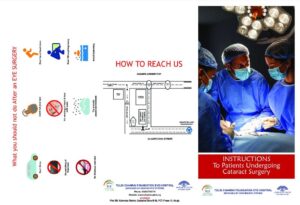Glaucoma is the name for a group of eye conditions in which the optic nerve is damaged at the point where it leaves the eye. This nerve carries information from the light sensitive layer in your eye, the retina, to the brain where it is perceived as a picture.

Your eye needs a certain amount of pressure to keep the eyeball in shape so that it can work properly. In some people, the damage is caused by raised eye pressure. Others may have an eye pressure within normal limits but damage occurs because there is a weakness in the optic nerve. In most cases both factors are involved but to a varying extent.
Based on our growing and ageing population, the level of the eye disease is expected to rise by 33% in Ireland over the coming decade, but treatment for glaucoma works very well if detected early and usually involves eye drops alone.
Early detection of glaucoma is key to preventing later sight loss, as is the importance of sight tests to detect possible glaucoma so that it can be diagnosed by an eye doctor and treated in the community where possible.
Those most at risk of developing glaucoma are people over 60, people with a family history of the disease and individuals of African and Hispanic ethnicity.




